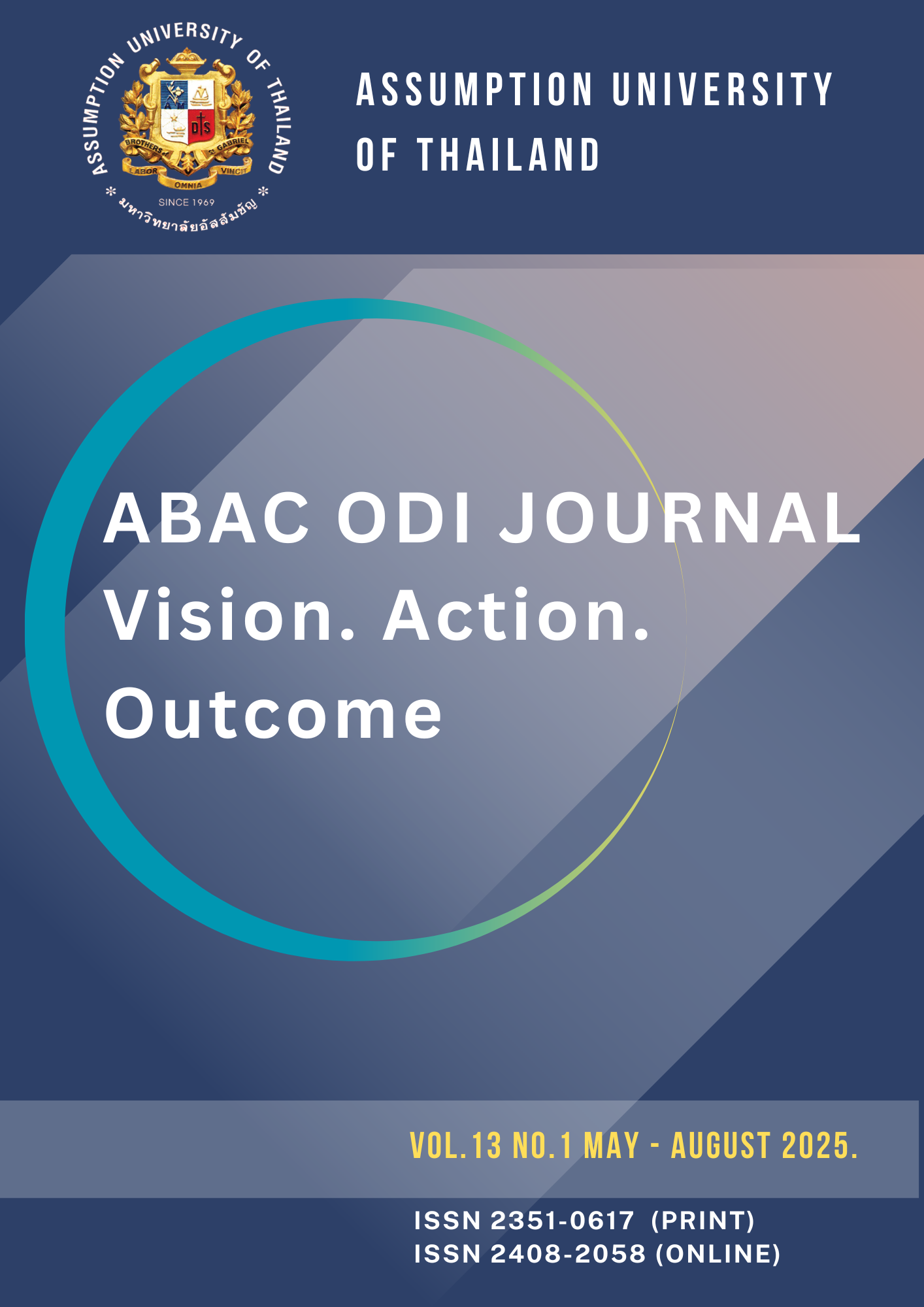Editorial
Abstract
Editorial Message
Sirichai Preudhikulpradab, Ph.D., Ed.D
Editor
Lecturer and Program Director, MBA HTM & Ph.D.HTM
Graduate School of Business and Advanced Technology Management
Assumption University, Thailand
This issue weaves together twenty vibrant studies, forming a rich tapestry of insights across leadership, organizational development, education, employee well-being, and technology adoption. Each study adds a unique thread to this complex fabric, reflecting the diverse challenges and opportunities in today’s fast-evolving world.
This issue begins by highlighting how nonverbal cues influence transformational leadership and the importance of interpersonal dynamics. It then showcases organizational development interventions as key tools for improving performance, leadership, and bridging generational gaps across cultures—from China to Thailand—demonstrating the value of tailored growth strategies.
Motivation, emotional intelligence, and work ethics drive job performance in Myanmar’s SMEs, while resilience helps NGOs survive uncertainty. In Thailand, empowerment and pastoral care highlight a growing focus on supporting well-being alongside performance.
Education research covers boosting student engagement at Beijing Polytechnic and exploring satisfaction with technologies like augmented reality and flipped classrooms in China, showing how education evolves with digital trends. Leadership studies extend to political campaigns and sustainable tourism, examining media framing and balancing luxury with environmental care in Cambodian resorts. The strong impact of social media on cultural trends and behaviors among Thai students and professionals highlights the digital age’s influence on society.
All of these studies reveal how leadership, motivation, communication, and organizational development intersect across cultures and sectors. They emphasize adaptability, emotional intelligence, and innovation as key to managing complexity. Beyond theory, this collection provides practical insights for leaders, educators, and policymakers working to build resilient and inclusive communities worldwide.
ABAC ODI Journal editorial team sincerely thanks all local and international scholars for their valuable contributions. Their dedication and expertise have made this issue diverse and impactful, enriching the academic community.




